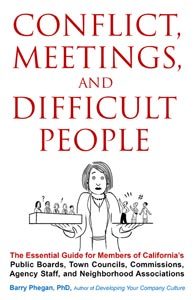 Man Plans, God Laughs.
Man Plans, God Laughs.
While life is largely a self-fulfilling-prophesy — we get what we expect — unmet expectations can be devastating. Even little ones can spoil our day. Having expectations is human. They come with our imagination. We can’t let go of expectations, but their proper management reduces disappointments while increasing peace and joy.
Will Happen or Should Happen
Have you ever been devastated because a major expectation was not met? I have. When I was first married, I expected marriage was forever. After my wife announced she was leaving I cried for two days. It took me a year and a half to recover.
Last week I was expecting friends for dinner. They called as I was preparing our meal, explaining that their pug Max was having a full heart transplant early next morning. They needed to hold his paw during the night.*
I’m human. I expect certain things will happen — or at least ‘should’ happen. Some of my expectations are concrete and definite; the sun will come up in the morning, the trash will be collected next Thursday, global warming will continue. Other expectations are not so predictable; how strangers will act, how my body changes with age, what will happen next week in Washington.
When I conjure expectations into certainties, I’m often disappointed. Confusing expectations with reality led to the observation, “Expectations are resentments under construction.”
Managing Expectations
Managing expectations is challenging and sometimes amusing. Family members, friends, and work associates have expectations of us, most of which we understand and fulfill. However, if we are unaware of another person’s expectations, and so don’t meet them, confusion reigns. We may take it personally, asking our self, “What did I do?”
How often do we recognize the situation of someone else’s unexpressed — and so unmet — expectation. “What didn’t I do, that they expected, but didn’t tell me?”
Assumptions and Expectations
It’s easy to assume that other people understand our expectations. That’s often delusional. Years ago an employee told me that ‘assume’ meant, “Make an ass out of you and me.” I was in my 20s, she in her 60s. That was wise and memorable advice to a fledgling supervisor.
To compound the expectation/assumption problem, we may imagine that other people are like us, and will think and behave like us. When they don’t, we may be surprised, disappointed or annoyed. I naïvely expect elected leaders “should” behave in a way that models how we all should behave. After all, “That’s what it means to be a leader!” Of course, most leaders don’t behave that way. They largely behave out of self-interest, so I’m usually disappointed. (But I’m still hopeful.)
In his first two years in office, President Obama expected that if he behaved in an open and inviting way that he’d build success through community and consensus, just as he had done in Chicago. But he was up against an opposition that was determined to pull him down, to deny him any “success.” Unfortunately, Obama did not adapt his expectations to reality. He did what most of us do most of the time, try to force reality into our expectation, rather than adjust our expectation to reality. By the time Obama conceded the reality of his opposition’s “total war”, it was almost too late.
Leaders Set Our Expectations
Following expectations is in our DNA. It’s part of being a social animal. We like to satisfy the expectations of others, of leaders and peers in our culture, tribe, or group. How we dress, how we greet people, how we do almost everything we do is socially prescribed as expectations.
This is delightfully obvious with children, who eagerly strive to understand and meet expectations. But sometimes the social expectations established for children are physically and emotionally destructive.
Managing Negative Expectations
I volunteer at a school where many children are defined by the society around them as second-class. They may have dark skin. They may be immigrants. They may not speak fluent English. But being defined as less than acceptable is a terrible burden, an ego-crushing expectation that can shape a lifetime. One of my self-assigned tasks is to help these children reshape this negative expectation into, “successful, competent, loved.”
My Expectations on Aging
As I age, I expect my body will weaken. Death is a certainty. It happens after one too many birthdays. However, my values are not weakening, they’re strengthening. As I approach the end of life it’s clearer to me what’s important. I know what values I want to show. That is an expectation I can definitely meet. I want to feel joy and appreciation. I want to be an example to my children and grandchildren of this stage of life.
These are not my declining years. These are my most fulfilled years — and I want that to be obvious. I have the freedom, the total luxury, of spending most of my time doing what makes me feel good. When the normal unexpected walks in life’s door; a power outage, an hour-long traffic jam, a heart fibrillation, or a no-show coffee date, I use these as opportunities to practice carpe diem, enjoy the moment, cherish the unexpected.
Expect the unexpected and you won’t be disappointed.
I welcome your comments or suggestions.
Thank you for visiting,
me, Barry Phegan
*Just kidding





